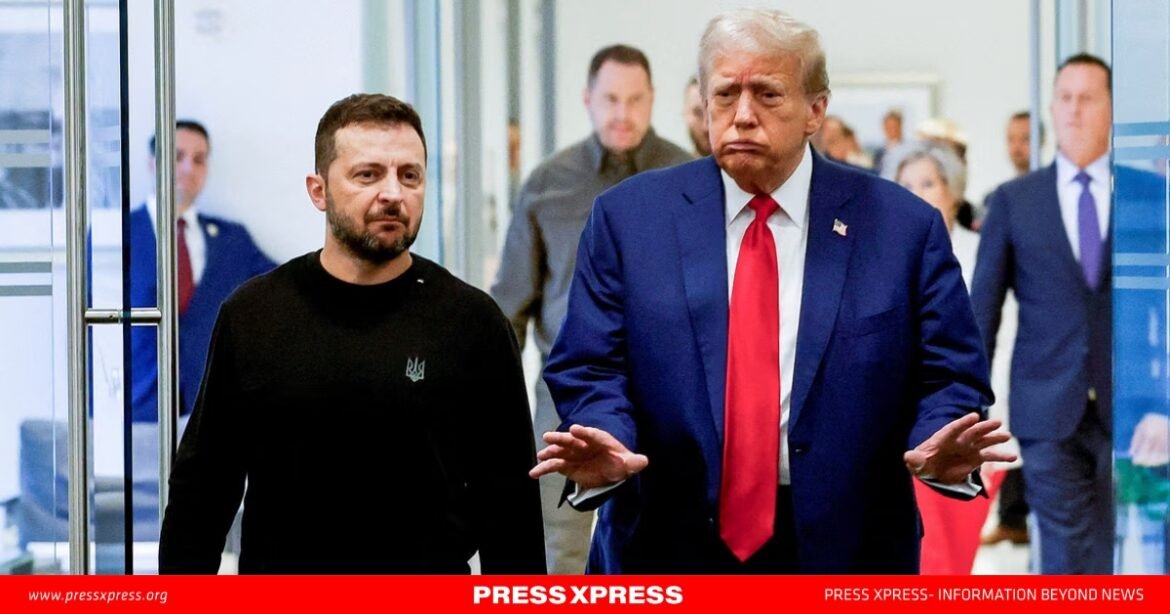Summary
- Trump aides acknowledge peace in Ukraine may take months or longer, walking back the campaign’s “Day One” promise.
- Complex diplomacy, entrenched conflict, and administrative staffing delays cited as reasons.
- Mixed signals from Russia complicate efforts for a resolution.
Advisers to President-elect Donald Trump are now conceding that achieving peace in Ukraine will take significantly longer than the “Day One” promise touted during his campaign. Sources close to the president-elect described the timeline as “months, not days or weeks,” marking a sharp departure from earlier rhetoric and signaling the challenges ahead for one of Trump’s flagship foreign policy pledges.
Two individuals familiar with the transition team’s discussions told Fox News that Trump’s campaign promise to resolve the war swiftly was, in part, “political theater” and an underestimation of the complexities involved. “The reality is, resolving the Ukraine conflict involves entrenched geopolitical stakes, and it’s not something that can be rushed,” one source said.
Extended Timeline for Resolution
Retired Lt. Gen. Keith Kellogg, slated to be Trump’s Russia-Ukraine envoy, echoed these sentiments in a recent interview. He suggested that achieving a meaningful resolution within 100 days would be a “reasonable” goal but admitted that even this timeline might be overly optimistic. John Herbst, a former U.S. ambassador to Ukraine, was more candid, describing the idea of a rapid solution as “wishful thinking.”
“For Trump to succeed, he has to convince Putin that there’s a significant cost to dragging this out,” Herbst noted. However, Russian President Vladimir Putin’s mixed messaging—welcoming talks while dismissing U.S.-proposed ideas—has added to the uncertainty.
Russia’s Calculated Stance
Russia’s recent battlefield gains, though costly, provide leverage for the Kremlin, making it less eager to rush into an agreement. Moscow’s UN ambassador, Vasily Nebenzya, recently dismissed Trump advisers’ proposals as offering “nothing of interest” to Russia. Analysts believe the Kremlin sees an advantage in prolonging negotiations to consolidate its territorial gains.
Additionally, Trump’s team has floated proposals to de-escalate tensions, including shelving Ukraine’s NATO ambitions and establishing a demilitarized zone patrolled by European forces. These ideas, while controversial, aim to address Moscow’s long-standing security concerns.
Campaign Promises vs. Diplomatic Realities
During his campaign, Trump vowed dozens of times to broker peace on “Day One.” As the election approached, he shifted his rhetoric, suggesting he could resolve the conflict “very quickly.” Post-election, the language softened further, with Trump acknowledging in December that the Russia-Ukraine situation might be even more challenging than reaching a Gaza ceasefire.
“I think the Russia-Ukraine conflict is going to be much harder,” Trump admitted at a press conference, underscoring the daunting task ahead.
Ukraine Strikes Back
Meanwhile, Ukraine’s military has launched its most extensive attacks on Russian soil since the war began nearly three years ago. Ukrainian forces targeted multiple Russian cities, including Saratov and Engels, with drones and missiles, reportedly damaging industrial sites and forcing schools and airports to shut down temporarily. Kyiv’s offensive may be a calculated move to demonstrate its resilience and military capabilities to Trump’s incoming administration.
Shifting Global Dynamics
As NATO bolsters its Baltic presence and Russia tests new hypersonic missiles, the stakes for resolving the conflict grow higher. Trump’s team faces the dual challenge of navigating internal policy debates while addressing the intricate web of international alliances and rivalries.
Trump’s envoy, Kellogg, postponed a planned visit to Kyiv, citing legal concerns under the Logan Act, which restricts private citizens from negotiating with foreign governments. While this delay highlights the intricacies of the transition, it also underscores the delicate balancing act required for meaningful progress.
What’s Next?
Trump’s foreign policy advisers are still finding their footing as they prepare to navigate one of the world’s most pressing geopolitical crises. While campaign promises may have been bold, the path to peace is shaping up to be anything but swift or straightforward.
Conclusion
With conflicting signals from Moscow, escalating Ukrainian offensives, and diplomatic challenges at home, Trump’s ambitious promise to end the Ukraine war faces significant headwinds. Whether the president-elect can translate campaign rhetoric into actionable diplomacy remains to be seen, but one thing is clear: the road to peace in Ukraine will be a marathon, not a sprint.


